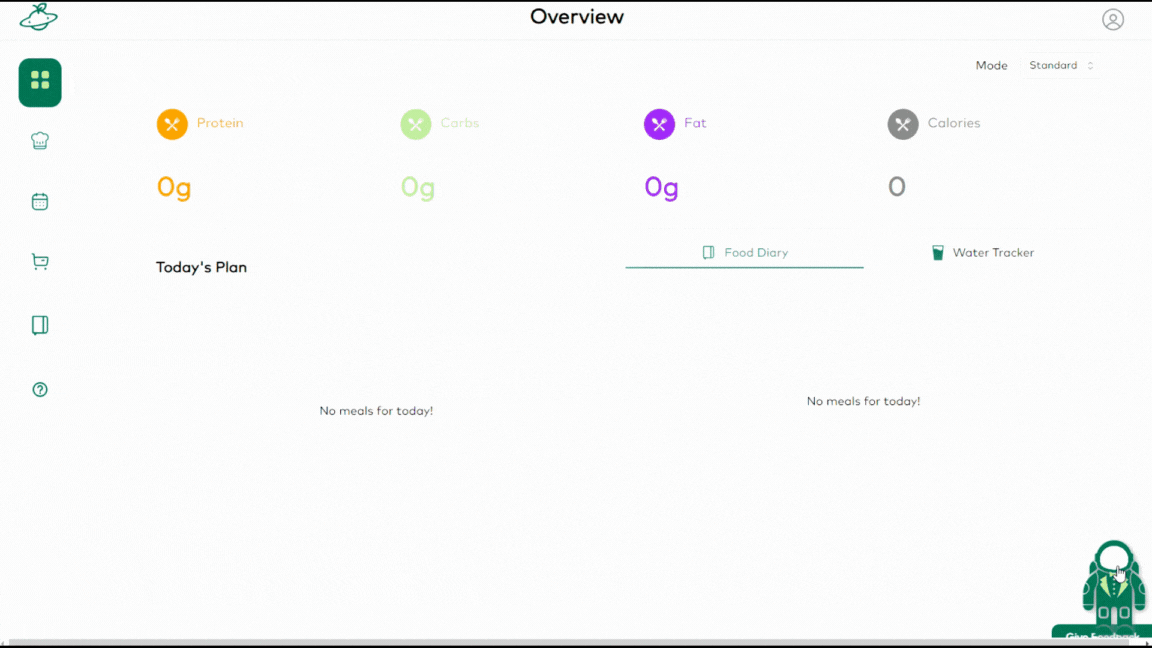Grocery shopping can often feel like a tedious task, but with some clever hacks, you…

9 Budget Meal Planning Tips
Here’s how you’re going to save on meal planning
Eating healthy doesn’t have to break the bank. With a little creativity and planning, you can enjoy nutritious and delicious meals without straining your budget. Here are nine budget-friendly meal planning tips to help you save money while maintaining a healthy diet.
1. Plan Meals Around Sales and Seasonal Produce:
Keep an eye on weekly sales at your local grocery stores and plan your meals around discounted items. Seasonal produce is often cheaper and fresher, so incorporate these ingredients into your meal plans. MyFoodPlanet can assist by integrating sales information into its recipe and meal planning features.

2. Buy in Bulk:
Purchasing items in bulk can save you money in the long run, especially for non-perishable items like rice, beans, pasta, and certain spices. Store bulk items properly to maintain their freshness. Use MyFoodPlanet’s shopping list feature to track what you need to buy in bulk.
3. Use Leftovers Wisely:
Plan to use leftovers in creative ways. For example, roasted chicken from dinner can be used in sandwiches, salads, or soups for the next day’s lunch. MyFoodPlanet can suggest recipes that make efficient use of leftovers, and you can mark leftover items on your meal plan to exclude them from your shopping list!
4. Cook at Home:
Eating out can significantly increase your food expenses. Cooking at home is not only more cost-effective but also allows you to control the ingredients and portions. Use MyFoodPlanet’s vast recipe database to find easy and budget-friendly recipes.
Check out an example on our Instagram page.
5. Meal Prep in Advance:
Preparing meals in advance can save time and reduce the temptation to order takeout. Allocate a day for meal prepping and use MyFoodPlanet to organize your prep schedule and recipes.

6. Opt for Generic Brands:
Generic or store-brand products are frequently comparable in quality to their name-brand counterparts, yet they come at a more wallet-friendly price point. These alternatives often undergo similar manufacturing processes and meet the same quality standards as well-known brands. By opting for generic or store-brand options, especially for staple pantry items such as flour, sugar, and spices, you can significantly reduce your grocery bill without sacrificing quality. Many shoppers find that the taste and performance of these products are indistinguishable from pricier brands.
7. Minimize Waste:
Plan your meals strategically to utilize ingredients before they expire. Organizing your meal plans and shopping lists can be instrumental in ensuring you purchase only the necessary items. This approach not only minimizes food waste but also helps in managing your grocery budget effectively. By being mindful of the expiry dates of ingredients you already have, you can create meal plans that prioritize their use and avoid unnecessary purchases, leading to a more efficient and sustainable kitchen routine.
8. Grow Your Own Herbs:
Fresh herbs can be expensive, but growing your own is a cost-effective and rewarding alternative. Herbs like basil, parsley, and cilantro can be easily grown in small pots on a windowsill.

9. Utilize Digital Coupons and Rewards Programs:
Many grocery stores offer digital coupons and rewards programs that can lead to significant savings. Take advantage of these deals and incorporate them into your meal planning.
Get help with MyFoodPlanet
By implementing these budget meal planning tips and utilizing tools like MyFoodPlanet, you can enjoy healthy, delicious meals without overspending. Remember, a little planning goes a long way in making nutritious eating both affordable and enjoyable.




This Post Has 0 Comments